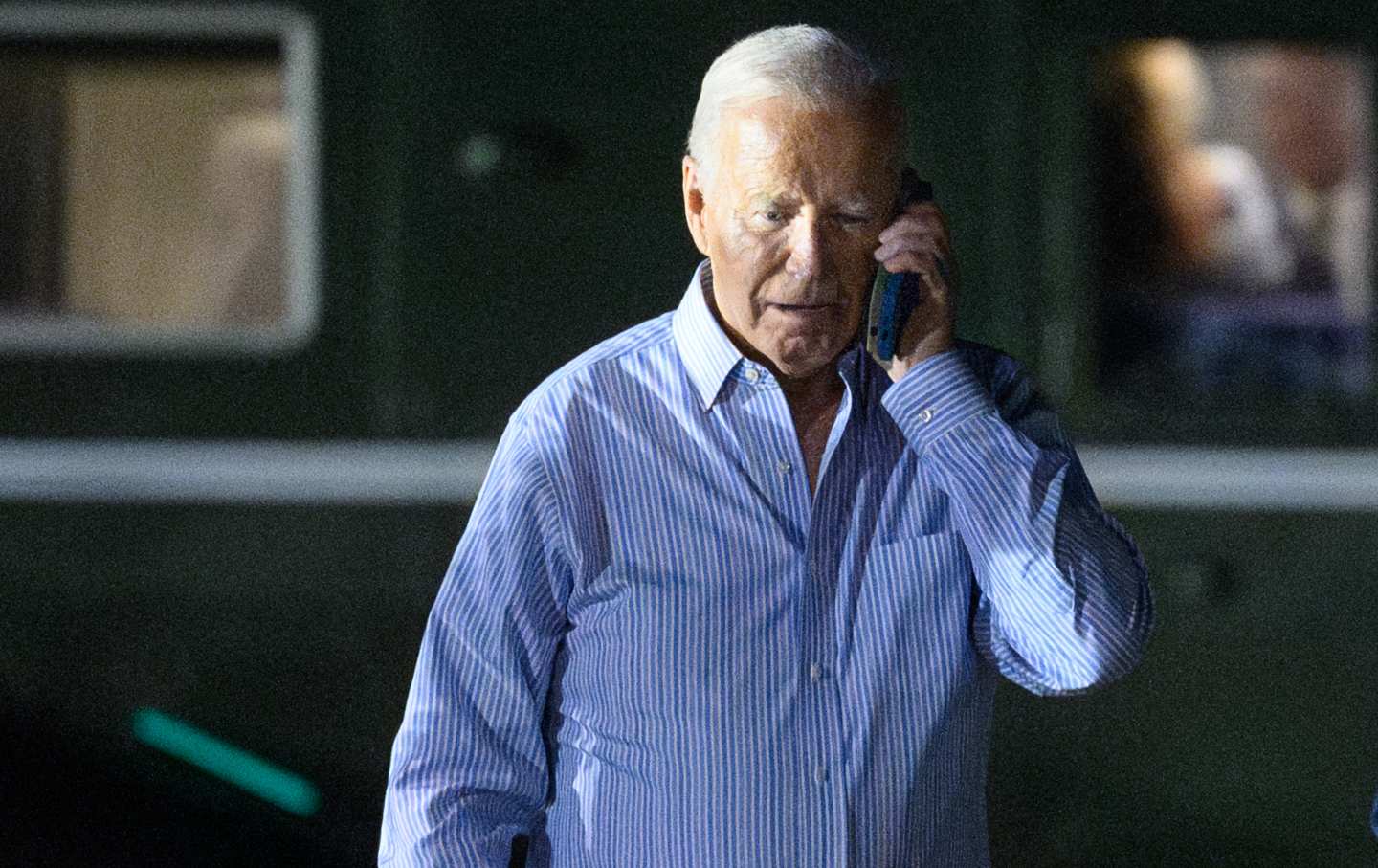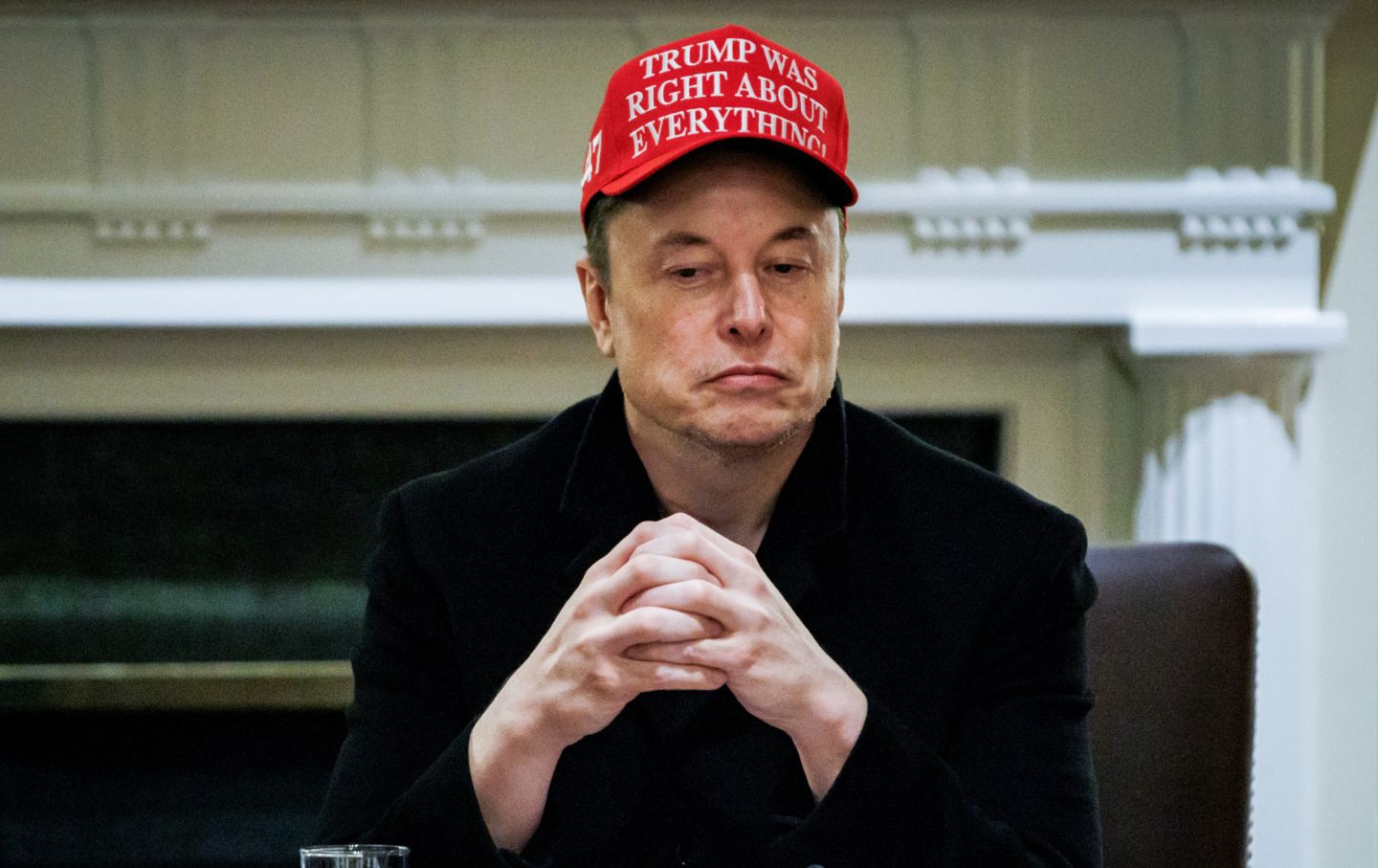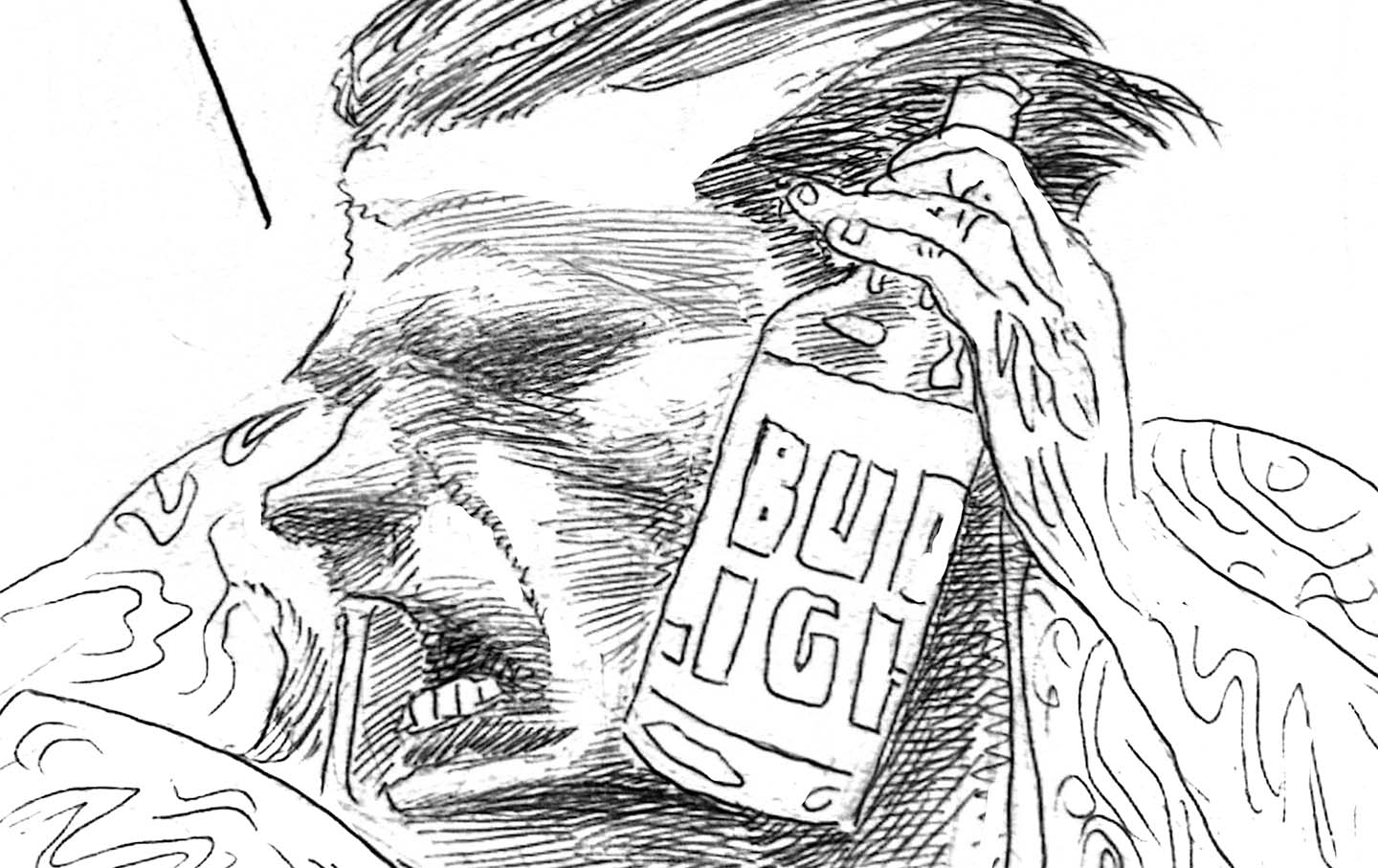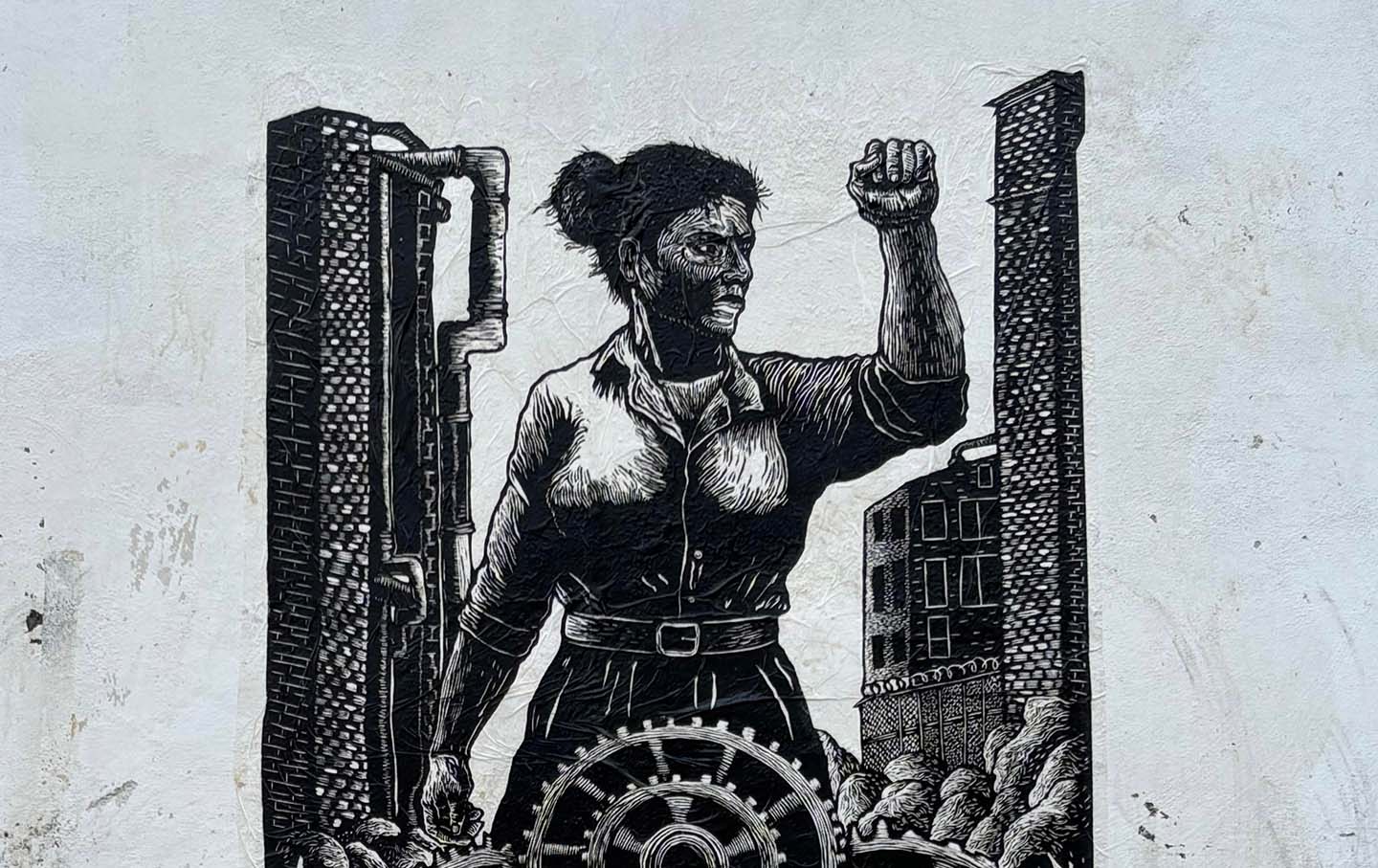A Senior DNC Member Says There’s a Way to Replace Biden and Beat Trump
James Zogby, who has served on the Democratic National Committee for decades, says that if Biden stands down, the DNC can establish a transparent, fair process to choose its nominee.

Joe Biden speaks on the phone while walking from Marine One to board Air Force One before departing McGuire Air Force Base in New Jersey on June 29, 2024.
(Mandel Ngan / AFP via Getty Images)Democrats at both the national and grassroots levels are wrestling with the question of whether President Biden should stand down as a candidate for reelection. Politicians and pundits have lined up on both sides of an intense public and private discourse about whether Biden’s stumbling performance in last week’s first presidential debate merits his replacement as the party’s nominee in the critical 2024 contest with presumptive Republican nominee Donald Trump. The ultimate decider will be Biden himself, as he has already won the delegates needed to secure the nomination. But what if Biden were to end his candidacy?
“Biden dropping out is not the issue. That’s something he has to decide as an individual. The question is how to replace him,” says James Zogby, who has been a member of the Democratic National Committee for 31 years. Zogby the president of the Arab American Institute, has been an adviser to multiple Democratic administrations and a leader in a number of presidential campaigns (most notably the Rev. Jesse Jackson’s 1988 “Rainbow Coalition” bid). He has served for 16 years on the DNC’s executive committee and 11 years on its resolutions committee.
Zogby believes that Biden should end his campaign. He also thinks that the DNC can establish a process for replacing Biden that would strengthen the eventual nominee—perhaps Vice President Kamala Harris—and give the Democrats the upper hand in November.
At a critical juncture for the Democratic Party and the 2024 presidential campaign, heis proposing a replacement process, which he describes in this exclusive interview with The Nation.
The Nation: Do you think that Joe Biden should stand down as a candidate for reelection?
Jim Zogby: I do. The focus of this election shouldn’t be on the president’s age, on his capacity to campaign, on his capacity to govern. It should be on the danger that Donald Trump presents to the country, on the threat that Donald Trump poses.
We knew going into the debate that Biden’s age and capacity to govern could be an issue. We didn’t expect the debate to solidify that issue. We are now at a point where the issue is front and center. It is what everyone is talking about, publicly and privately. We have to face reality here. Do I think that Joe Biden is capable of governing? I would say “yes.” Is he capable of forming a team that can govern? Yes. But can he win an election under these circumstances, when these questions about his abilities will be the constant focus? When the Republicans and the media are looking for the next gaffe, waiting for the next time he forgets something, watching his every step to see if he will stumble? This is not what the election should focus on. And, yet, that’s where it’s headed.
I like Joe Biden. Joe Biden is too good a person, and he has been too good of a president to have the focal point of the rest of the campaign be his ability to speak, or his capacity to mount a campaign. I have obvious differences with him on the Middle East; I have been furious with him about that; still am. But his record on domestic issues has largely been a good one. I would trust Joe Biden on his worst day more than Donald Trump on his best day. But I don’t want his last campaign to be one where all people talk about are his weaknesses.
To go out as the gracious warrior, who fought the great battle to defeat Donald Trump in 2020, served four years and then decided to pass the torch, would absolutely solidify his place in history as somebody who thought more about the good of the country than himself. He could endorse one of the candidates if he wants to. That would be fine.
What’s most important, what’s most necessary, is that we have an open, transparent and democratic process.
TN: If the president were to decide not to continue his campaign, what would happen next? Where would the DNC come in?
JZ: Biden dropping out is not the issue. That’s something he has to decide as an individual. The question is how to replace him. I don’t think there’s any question right now that there is unease and dissatisfaction with his continued candidacy as head of the ticket. But just saying “he shouldn’t run” doesn’t answer the question of who will run, and how will we get that person in a position where they can enter the fall campaign with the consensus of the party behind them. It can’t be a coronation. It can’t be by default. There has to be a process that makes people say “This was done fairly. It was done in a transparent and democratic way.”
Popular
“swipe left below to view more authors”Swipe →TN: Couldn’t he simply choose to hand things off to Vice President Kamala Harris, and ask the convention to endorse her?
JZ: He could very well do that. But I don’t think that helps her as a candidate against Trump. I think that in a process like the one I am proposing—an open and transparent process where candidates compete for the nomination—she very well could win. I think she’ll have significant support among Black delegates. I think she’ll have support among women delegates. I think she’ll have support among strong Biden supporters. The question is: Should she simply be handed the nomination, or should she actually be part of a process where she wins it? And I think it would be better for her, better for the party, if she won the process.
TN: But the process you’re talking about doesn’t really exist at this point.
JZ: The party itself can create a nominating process. It could happen in a short period of time. And with enough signatures required from DNC members to qualify, it could limit the number of candidates to only those who are going to be serious contenders: governors, senators, cabinet members, people with a national constituency such as the vice president. You’re not going to get chaos. The fear that some people in the party might have is that, if the president steps down, it’s chaos. It doesn’t have to be chaos. It can be organized.
Can it be unpredictable? Yes. And would unpredictable be bad? Absolutely not. It’s what makes the convention exciting. It would make convention delegates a part of a process like the one where the party came together and nominated a John Kennedy, or a Franklin Roosevelt. Maybe there would be multiple ballots. Maybe Governor This would drop out and say, “I endorse Governor That.” There would be debates about issues and strategies. There would be delegations lobbying other delegations. It would be an enormous, engaging, exciting, transparent democratic process that would, I think, energize the party and come up with a candidate who would have consensus support among activist Democrats.
TN: Let’s get specific. How exactly would the process you are proposing work?
JZ: The Democratic National Committee should convene an emergency meeting. It would only occur after the president decided not to run. The DNC members would lay out a process whereby candidates would be able to run if they get 40 elected Democratic National Committee, from the four regions of the country that are recognized by the DNC, to sign endorsement petitions supporting them. In some cases, most of the endorsement signatures would come from a candidate’s own state. But other candidates could have a national network of supporters based on their record or their stands on the issues. Vice President Harris and Governor Gavin Newsom would get support from California. Governor J.B. Pritzker would do well with the Illinois members, Gretchen Whitmer with Michigan members, and the same for Josh Shapiro with the Pennsylvania members. If Cory Booker ran, I am sure the senator would do well with the New Jersey members, and probably get some from New York. Ro Khanna might get support from a number of states.
The requirement that they get 40 DNC members to sign, and that they get at least some signatures from regions other than their own, would demonstrate that they have at least some national appeal, which is important. The signatures would then be certified by the DNC secretary. And then the campaigning would begin. There would be an intense month of activity, leading up to the Democratic National Convention, where then there would be normal nominating speeches and then seconding speeches and then votes on the floor.
Obviously, the majority of delegates would have to endorse the nominee. That might require multiple ballots. I could imagine situations where one candidate could drop out and encourage their delegates to support somebody else. But it would be a jam-packed month of Democratic Party activity, with focus on the candidates, and it would yield a nominee that would have the support of the absolute majority of the delegates. It would become the focal point of the campaign.
TN: There has been pressure on the DNC to hold an early, pre-convention roll call in order to qualify for the ballot in Ohio. Is that a factor in deciding how to establish a process?
JZ: I know there’s an Ohio problem—but the GOP in Ohio is making noises about blocking Biden even if Democrats meet the early deadline. If the party does what I’m suggesting, the momentum created will be so much greater that there will be overwhelming pressure for Ohio to bend. All the dynamics would change.
TN: A process like this would also, I assume, do something that Democrats have had a very hard time doing—steal the limelight from Donald Trump and the Republicans.
JZ: It would dominate national media for the next month and a half—through the Democratic convention. There would barely be a mention of the Republican convention going on. So much of the focus would be on the Democrats. This would compress the process, like the British do, and focus the energy into a short period of time. You’d have some real stars in the field, campaigning in different cities, giving speeches to mass audiences in hopes of influencing grassroots Democrat who could in turn influence delegations. The party could organize mass events that would bring all the candidates together to make their arguments. They would attract intense national TV coverage and print coverage, internet coverage and podcasts. Interviews all the time.
By the time you get to the convention, there would be such enthusiasm, such excitement. The nominating speeches would draw wall-to-wall media coverage. It would be like in the old days, where they started covering things at noon and finished at one in the morning, and people stayed glued to the coverage to see who would win: Was it going to be Stevenson? Was it going to be Kennedy? Was it going to be Carter?
It would create real energy within the Democratic Party and around its nominee. This would be a complete break from what we’ve seen at recent conventions. Instead of the networks giving the convention an hour or two, where most of the hosts just talk to one another, they would have reporters on the floor: talking to delegations, reporting on unexpected developments, identifying emerging coalitions. It would be an event; the biggest political event of the year. And while it was going on, it would be “Donald Who?” No one would be paying attention to Trump.
And the Democratic nominee would have a heads-up advantage over Trump because America would have been focused on this process, would be excited by this process. They would be excited about the Democratic nominee. And that nominee would beat Donald Trump in November.
Support independent journalism that exposes oligarchs and profiteers
Donald Trump’s cruel and chaotic second term is just getting started. In his first month back in office, Trump and his lackey Elon Musk (or is it the other way around?) have proven that nothing is safe from sacrifice at the altar of unchecked power and riches.
Only robust independent journalism can cut through the noise and offer clear-eyed reporting and analysis based on principle and conscience. That’s what The Nation has done for 160 years and that’s what we’re doing now.
Our independent journalism doesn’t allow injustice to go unnoticed or unchallenged—nor will we abandon hope for a better world. Our writers, editors, and fact-checkers are working relentlessly to keep you informed and empowered when so much of the media fails to do so out of credulity, fear, or fealty.
The Nation has seen unprecedented times before. We draw strength and guidance from our history of principled progressive journalism in times of crisis, and we are committed to continuing this legacy today.
We’re aiming to raise $25,000 during our Spring Fundraising Campaign to ensure that we have the resources to expose the oligarchs and profiteers attempting to loot our republic. Stand for bold independent journalism and donate to support The Nation today.
Onward,
Katrina vanden Heuvel
Editorial Director and Publisher, The Nation








